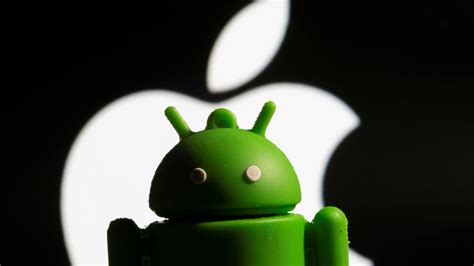Apple’s recent announcement about integrating Rich Communication Services (RCS) into iOS 18 has stirred the pot in the tech community. On the surface, the move seems like a progressive step towards improving communication between iOS and Android users. However, a closer look at the buzz surrounding this decision reveals a complex mesh of opinions and insights on interoperability, privacy, and past endeavors of tech giants like Apple and Google.
For years, the conversations between iOS and Android users have been marked by the green and blue bubbles, signifying SMS and iMessage, respectively. The change to RCS promises to bridge that divide, enabling a richer messaging experience that includes higher-quality media and read receipts. Yet, the initial savory of relief among many users has quickly soured, as criticisms arose surrounding the speculated continuation of non-end-to-end encryption (E2EE) when not using Google’s proprietary solutions. Critics argue that this makes the RCS protocol no better than SMS in terms of privacy.
It’s essential to dig into Google’s role in this RCS narrative. Google has been the cheerleader for RCS, touting it as the savior of modern messaging. Their implementation uses the Signal protocol for E2EE, but it’s proprietary and only works within Google’s ecosystem. This means cross-platform RCS messages remain unencrypted, a clear deviation from the security and privacy standards users have come to expect from modern messaging services. This selective implementation of encryption raises alarms among privacy advocates who see it as a strategic move by Google to retain control over the messaging landscape.
The comments from tech enthusiasts and analysts reflect a history of distrust, especially regarding interoperability. The memory of FaceTime being announced as an open standard by Steve Jobs, only to be mired in a patent lawsuit, is still fresh. Many believe that had FaceTime not been tied up in legal squabbles and Apple had pushed for its interoperability, the communication landscape might have been vastly different. Instead, the failure to standardize communication protocols across platforms has left the likes of WhatsApp, Signal, and Telegram to fill that void.
The rivalry and inconsistent strategies of Apple and Google in messaging services are well-documented. Google’s numerous attempts – from GTalk and Hangouts to the ill-fated Allo – have resulted in a fragmented user experience. iMessage, on the other hand, remained an Apple fortress that thrived on exclusivity. The advent of RCS brings an uncanny parallel to these previous efforts, with many anticipating similar pitfalls if the standards and implementations aren’t unified. The non-technical majority of users might get caught in another labyrinth of semi-compatible messaging services, defeating the purpose of RCS.
Looking ahead, Apple’s endorsement of RCS could be a double-edged sword. On one hand, it signifies a potential shift toward more inclusive and robust communication channels. On the other, if mishandled, it could perpetuate the cycle of confusion and fragmentation that has plagued messaging apps for over a decade. The real challenge lies in whether Apple and Google can transcend their competitive inclinations to foster an open, secure, and truly interoperable messaging ecosystem. Until then, the promise of RCS remains as ambiguous as its implementation strategies.


Leave a Reply